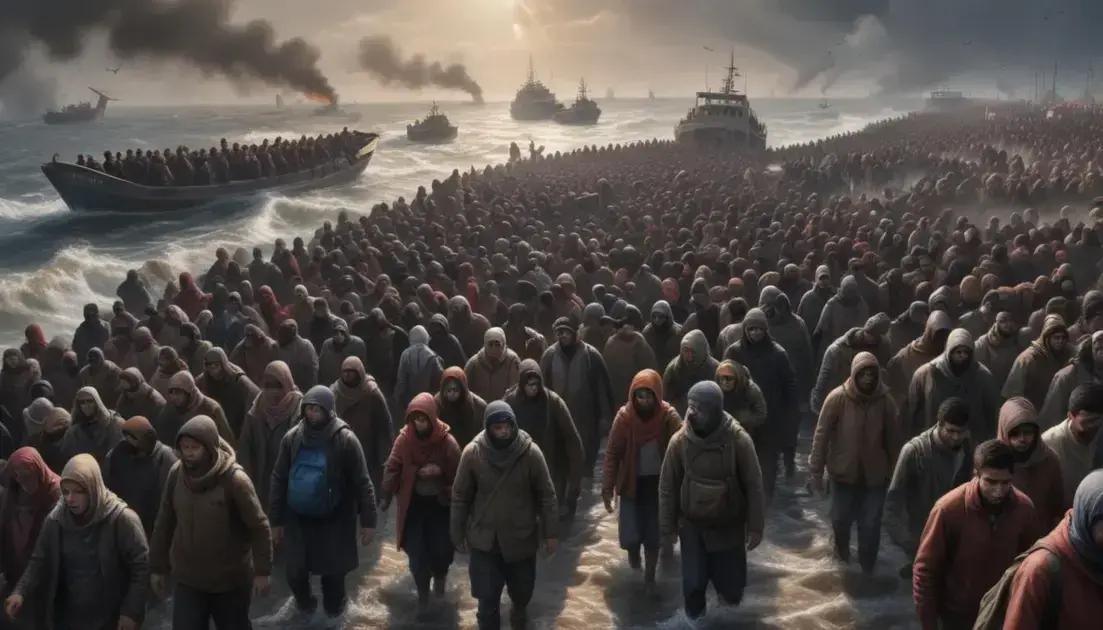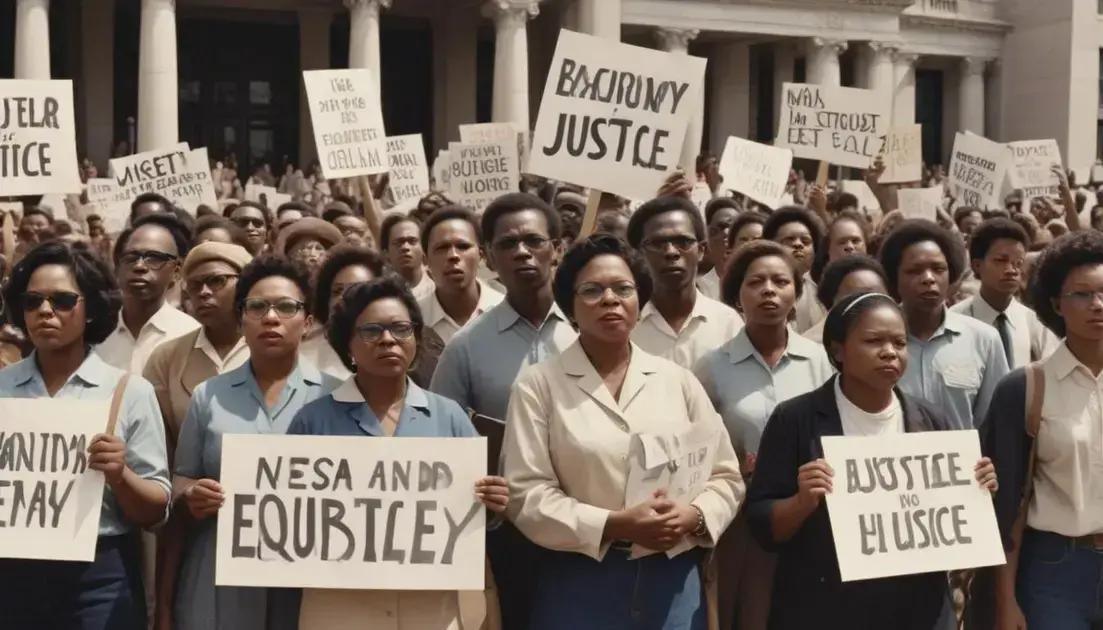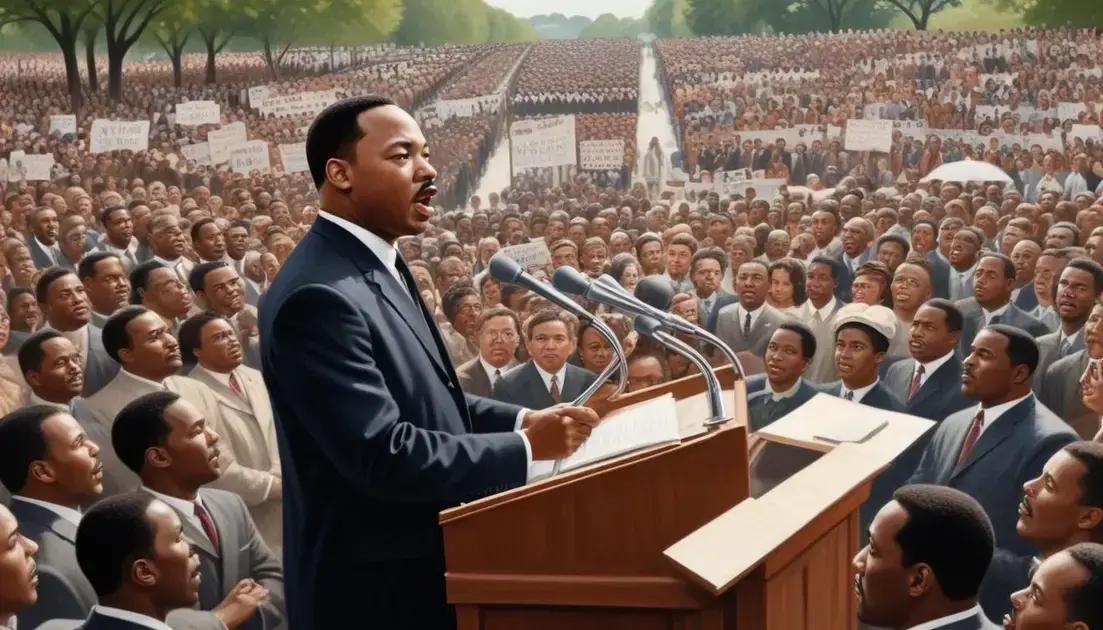
European Refugee Crisis of 2015: Causes and Impact
The European Refugee Crisis of 2015 led to significant human displacement, as over a million refugees fled conflict and violence, particularly from Syria. This crisis tested Europe’s values regarding borders, solidarity, and human rights, sparking intense political debates and varied national responses. Some countries welcomed refugees, while others imposed strict border controls, resulting in a divide within the EU. The crisis highlighted stories of bravery and resilience among refugees, revealing the need for compassion and unity in addressing complex challenges related to immigration and humanitarian aid.
The Refugee Crisis in 2015 reshaped Europe as millions fled war ravaged regions, raising critical questions about humanity and borders. What can we learn?
Introduction
The European Refugee Crisis of 2015 was a major turning point for many countries. Thousands of people fled from war and violence in their home countries, seeking safety in Europe. They faced heavy challenges along the way, including dangerous journeys and uncertain futures.
Many were escaping from conflicts in places like Syria and Afghanistan. The journeys were treacherous, with many risking their lives on small boats across the sea. These actions sparked a wide-ranging debate about how Europe should respond.
Countries in Europe had to decide how to handle the influx of refugees. Some welcomed them with open arms, while others were hesitant. This led to strong discussions about borders, safety, and what it means to be a part of a community.
The crisis also showed the importance of human rights. It reminded us that everyone deserves a place to feel safe. As nations worked together, the stories of these brave individuals highlighted the need for empathy and support.
Historical Background
The European Refugee Crisis didn’t happen overnight. It’s essential to understand the historical background leading up to 2015. For many years, wars and conflicts in the Middle East and Africa have pushed people to flee their homes.
The ongoing war in Syria, which started in 2011, was one of the biggest reasons for the crisis. Millions of Syrians faced violence, destruction, and a lack of basic resources. This dire situation forced families to leave, often risking everything for a chance at safety.
In addition to Syria, other regions faced similar issues. Countries like Afghanistan and Iraq dealt with ongoing conflicts. These wars created chaos and instability, leading to widespread fear.
Over the years, Europe had seen smaller waves of refugees. However, in 2015, the numbers surged dramatically. This sudden increase caught many countries off guard. Both governments and communities had to quickly adjust to the new reality.
Understanding this background helps explain the responses that followed. Nations had to balance compassion with concerns about security and resources. This complex mix of feelings shaped the discourse around the crisis.
Human Stories
The European Refugee Crisis isn’t just about numbers. It’s about real people facing tough challenges. Many refugees have powerful stories that show their courage and resilience.
Take the story of a young Syrian girl named Amina. She left her home to escape bombings. With her family, she traveled through dangerous routes. They often had to hide and move quickly to stay safe. Amina dreamed of a future where she could play and learn.
Another story is about a father named Idris. He left Iraq to find a better life for his kids. The family faced long journeys, often with little food or water. Despite the hardships, Idris never lost hope. He worked hard to get his family to safety.
These human stories highlight the strength of the human spirit. Every refugee has their own journey, filled with challenges and hopes. Understanding these personal experiences helps us see the crisis in a more meaningful way.
Many organizations try to help share these stories. They raise awareness and support refugees in their new communities. It’s crucial to listen to these voices. They remind us that behind each number is a life that matters.
Impact on European Politics
The European Refugee Crisis has had a big effect on politics across the continent. Many governments faced pressure to respond quickly to the influx of refugees. This created intense debates about policies and values.
Some countries, like Germany, welcomed a large number of refugees. Chancellor Angela Merkel’s open-door policy aimed to provide safety. However, this decision was not without controversy. It faced criticism from those who feared for national security.
Other nations took a very different approach. Countries like Hungary built fences and restricted access. They focused on border security and limited refugee intake. This division led to strong tensions among European nations.
The crisis also sparked the rise of far-right political parties. These parties often used anti-immigrant sentiments to gain support. Their messages resonated with people worried about jobs and security.
At the same time, the refugee situation led to discussions about the future of the European Union (EU). It tested the EU’s principles of free movement and solidarity. Many wondered if the EU can remain united in the face of such challenges.
As countries dealt with this crisis, it changed not just their immigration policies but also their relationships with one another. The refugee crisis reshaped conversations about identity, safety, and responsibility in Europe.
Responses and Challenges
The European Refugee Crisis led to many responses from governments and organizations. Some countries took immediate action to provide help. Others faced challenges that complicated their responses.
One main response was the establishment of humanitarian aid programs. Many NGOs, like the Red Cross, stepped in to provide food, shelter, and medical care. These organizations worked hard to meet the needs of refugees.
However, the sheer number of refugees created big challenges. Some countries struggled to keep up with the demand for services. They dealt with limited resources, staff shortages, and crowded shelters.
Another challenge was public opinion. In some areas, local communities worried about the impact of refugees on jobs and resources. This led to growing tension and fear.
Many governments also felt pressure to enforce stricter immigration policies. Some countries increased border controls to limit entry. This often put refugees at risk, forcing them to take dangerous routes.
Despite these challenges, there were positive developments too. Local communities often united to support refugees. Many offered assistance through volunteering and donations. This showed the power of kindness and community spirit.
The ongoing responses and challenges of the refugee crisis highlight the complexity of helping those in need. It requires cooperation, understanding, and a commitment to shared humanity.
Conclusion
The European Refugee Crisis has shaped lives and societies in many ways. It brought to light the struggles of those fleeing danger. At the same time, it tested the values and responses of European countries.
Throughout the crisis, we’ve seen great acts of kindness and support. Communities came together to help refugees feel welcome. This shows the power of compassion in trying times.
Yet, challenges remain. Many countries continue to wrestle with balancing security and humanity. Political debates often swirl around issues of immigration and borders.
Ultimately, the stories of those affected remind us of our shared humanity. Listening to refugees and understanding their journeys is essential. Awareness can lead to a more supportive and just world.
As we look to the future, we must continue working towards solutions. This ensures safety and dignity for everyone, regardless of where they come from.
Conclusion
In conclusion, the European Refugee Crisis has deeply affected both individuals and countries across Europe. It has shown us the importance of empathy and support for those fleeing danger. As we’ve seen, the stories of refugees highlight their strength and resilience.
While the crisis has led to positive actions, such as communities coming together to help, many challenges still exist. Governments must find a balance between security and compassion. This balance is crucial for supporting those in need while ensuring safety for all.
Moving forward, it’s important to continue listening to the voices of refugees and understanding their journeys. By promoting kindness and cooperation, we can build more inclusive societies that respect human rights. The lessons learned from this crisis can help us create a better future for everyone, no matter where they come from.


